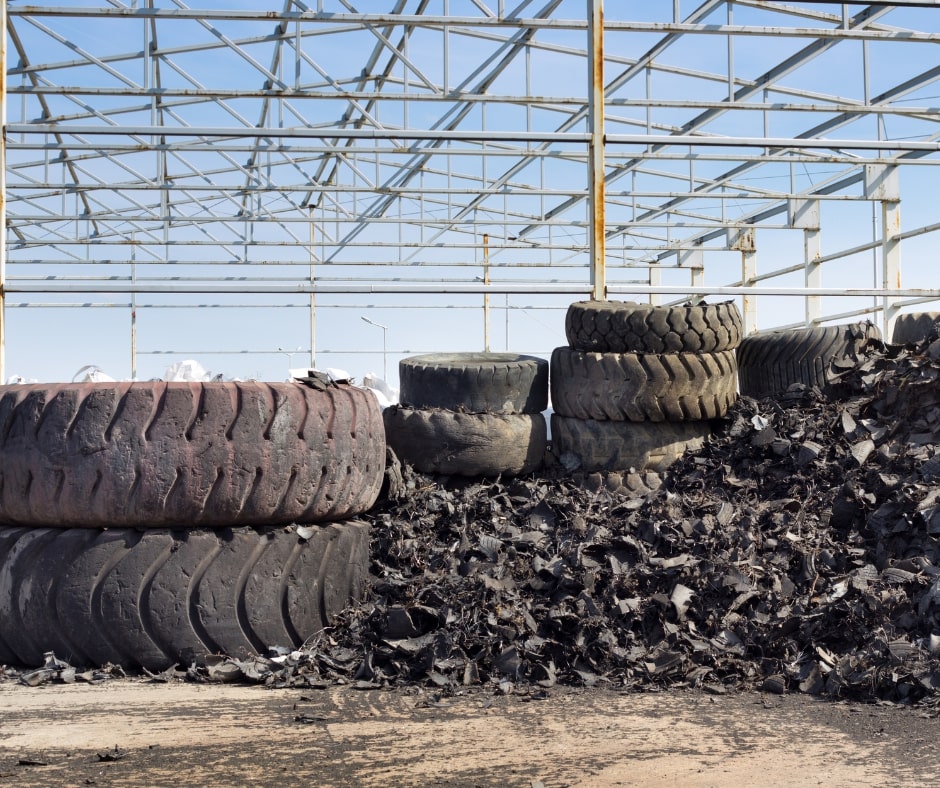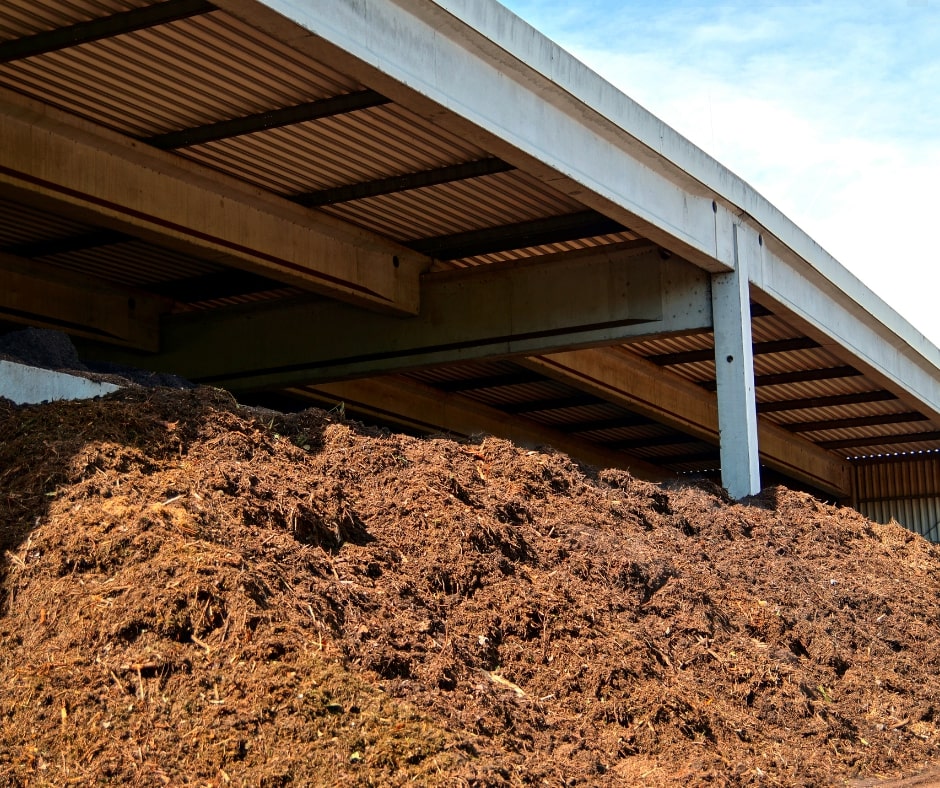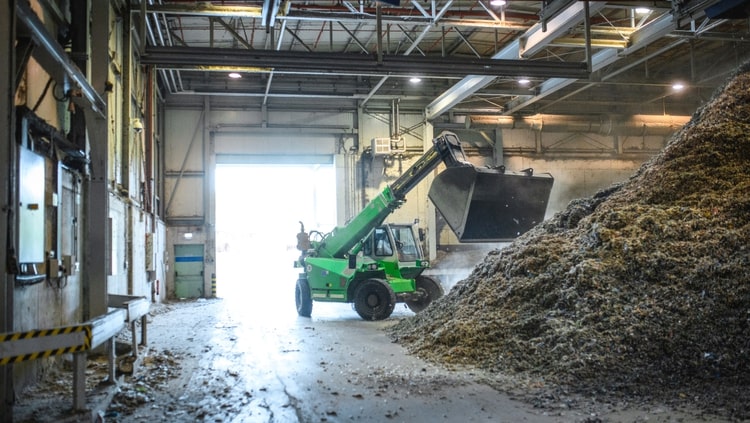For most people, the term “industrial waste” probably conjures up images of mountains of garbage, or rows of steel drums with that scary hazardous waste sign on them. The funny thing is though, by using modern equipment and processes, industrial waste is quickly becoming a valuable commodity.
In this guide we’ll show you how industrial recycling works, give you 4 ways that recycling can benefit your business, look at some commonly recycled industrial materials, and talk you through some common methods of recycling industrial waste. Hopefully by the end not only will you see the answer to the question “Can industrial waste be recycled?” is hell yes but you’ll also be itching to get started recycling some of your own industrial waste!
What is industrial waste?
Broadly speaking, industrial waste is the waste created by an industrial process, this is usually manufacturing something but could also include construction materials or chemicals used in treatment processes.
Factories, mills, power stations, and quarries all produce significant amounts of waste, unfortunately, it seems very difficult, if not impossible, for you to have an industrial process that creates no waste.
Storing and disposing of this waste is a big challenge for companies, with laws and regulations that are only getting stricter. Many businesses now use specialist waste management companies to help them stay within the regulations.
Rather than sending this waste to landfill, these waste management companies are now recycling more and more industrial waste, a process that boosts profits and has a positive impact on the environment, win-win.
The waste management industry has really cleaned up its act over the last decade or so, now much of the waste it recycles makes its way back into the industrial supply chain and is seen in Europe as a valuable commodity in its own right.

How most people imagine industrial waste
How does recycling industrial waste benefit businesses?
All this sounds nice, but at the end of the day you’ve got a business to run, so there needs to be a benefit to recycling your waste. We’ve listed the main 4 below:
- Protects the earth’s resources and lowers your companies carbon footprint- this one is kind of a big deal which is why it’s been listed first. By recycling your industrial waste, you are reintroducing materials into the supply chain that would otherwise have to be sourced from scratch. This is much more friendly to the environment, for example, it’s estimated that recycling aluminium needs about 95% less energy than producing it from raw ore.
- Boosts your bottom line- let’s be honest, as a business owner worrying about payroll this may be the one you’re most interested in. Well, we’ve got great news for you, recycling can boost your profits in several ways highlighted below:
- Reduced disposal costs- when waste management companies recycle your waste, they charge significantly less than they would if it was all going to landfill.
- Reduced inventory costs- if you are able to recycle some of your waste on site, you can reuse the material in your own processes meaning you don’t need to purchase more. An example of this is a construction company crushing old bricks to make hardcore.
- You can sell your waste as a product- certain waste types can be sold to other companies to offset your production costs. Examples of this are UPVC and metal.
- Creating jobs- all this extra recycling needs humans to make it happen, by recycling more you’ll create more jobs both in your company and in the waste management sector which can help your business and the overall economy.
- Boosts your business’s reputation- in today’s environmentally responsible society many customers will only choose to do business with companies that are actively recycling their industrial waste, or those that use recycled products in their manufacturing processes. If you’re business is leading the way with recycling, then let your customers know! It can be a powerful marketing tool and can be justification for charging a premium for your products.
What industrial waste can be recycled?
Ok so now you’re sold on the benefits of industrial waste recycling let’s look at some of the more common, but perhaps not that obvious materials that can be recycled.
Rubber
Rubber is a key ingredient in many products, not just tyres and erasers but clothing, belts, medical gloves, and toys. Rubber is actually quite difficult to recycle as it cannot be melted down such as metals or some plastics, instead it is often shredded, which reduces its size down to a powdery material. This can then be combined with special resins to create thermoplastic elastomer (TPE) or used to create flooring for playgrounds and sports surfaces.
Industrial sand
Industrial sand, such as the sort used in foundries to make moulds can be reused many times over, but eventually heat and abrasion can make the material unstable. Instead of disposing of the sand in landfill, it can be used as a base material on building sites in especially cold climates. The sand acts like soil but has a much lower freezing temperature making it easier to work with when the thermometer drops below zero.
Concrete
Concrete can be broken up into smaller chunks using crushing machines in a process called rubblization. These chunks can then form the base materials in other aggregates and building materials. Concrete production uses a lot of carbon so every bit that can be recycled helps.

Tyres at a recycling centre
Ok, so how do you recycle industrial waste exactly?
There are a number of methods that can be used to recycle your industrial waste, which one you choose will depend on your waste type and the resources you have available. We’ve listed 5 of them below:
- Breaking it down- if you’re into gardening you may be familiar with composting, well many companies are taking this to a whole new level by installing large composting systems that are used to break down their organic or biodegradable waste.
- Feeling hot- hot treatment is a clever way to turn the energy stored in your waste into electricity. This is done by heating up the waste to a high temperature in a space with little oxygen in it.
- Burning up- a lot of your waste items can be melted down and recast as new products, examples of these are products made from metals, plastics, or glass.
- Reclamation- this basically means using scientific processes such as distillation to separate you waste into raw materials which can then be used to make new products. This works especially well on liquid wastes such as oils and solvents.
- Trapped gas- even with all this recycling there is still an enormous amount of waste in landfills. Some waste management companies now have products that can trap the gasses that landfills release as they decompose.

Industrial sized compost!
After reading this I’m hoping you feel a bit more confident in tackling your industrial waste. The big takeaway here is that there are loads of great options to choose from and that things are improving all the time. I’m sure that with advances in AI, robotics and data science, industrial waste recycling will continue to become more effective and easier for you to implement in your business.
Thank you for reading, if you want any more information on industrial waste management or recycling send us a message using this link, we love talking rubbish!

